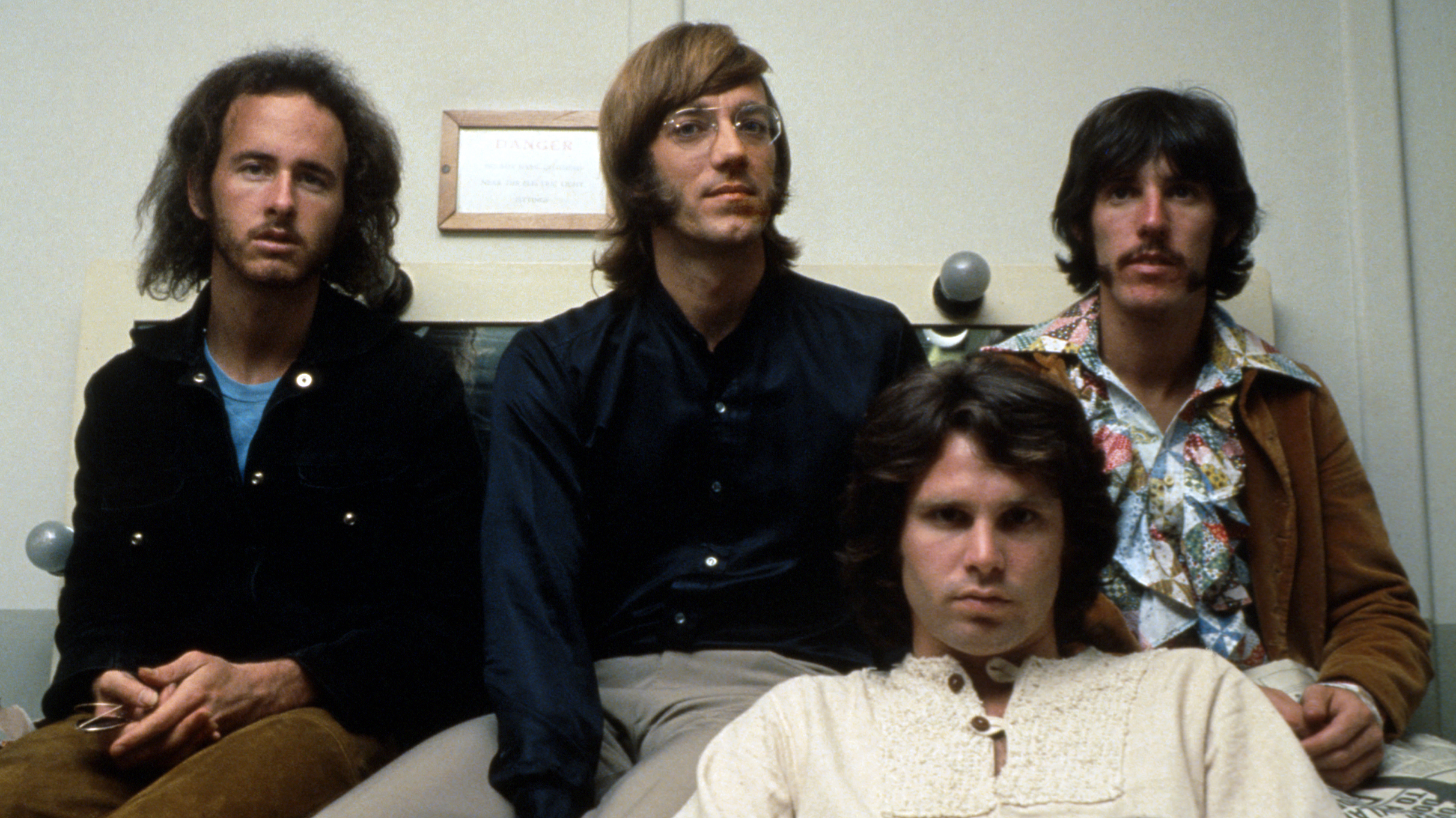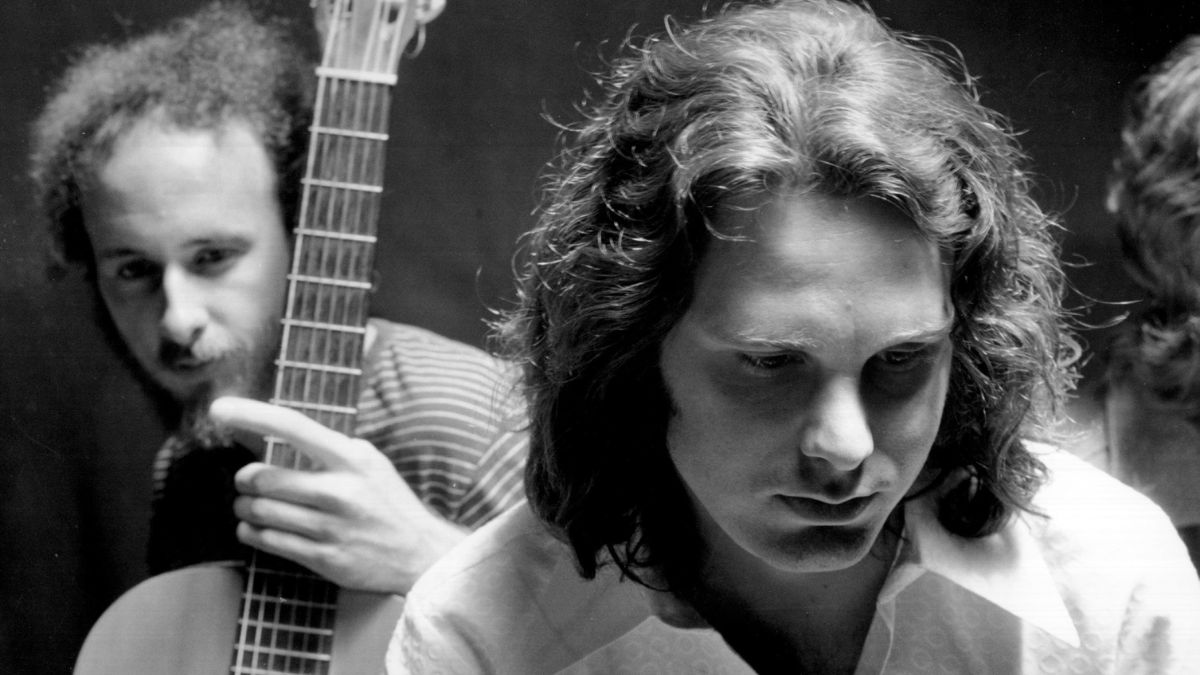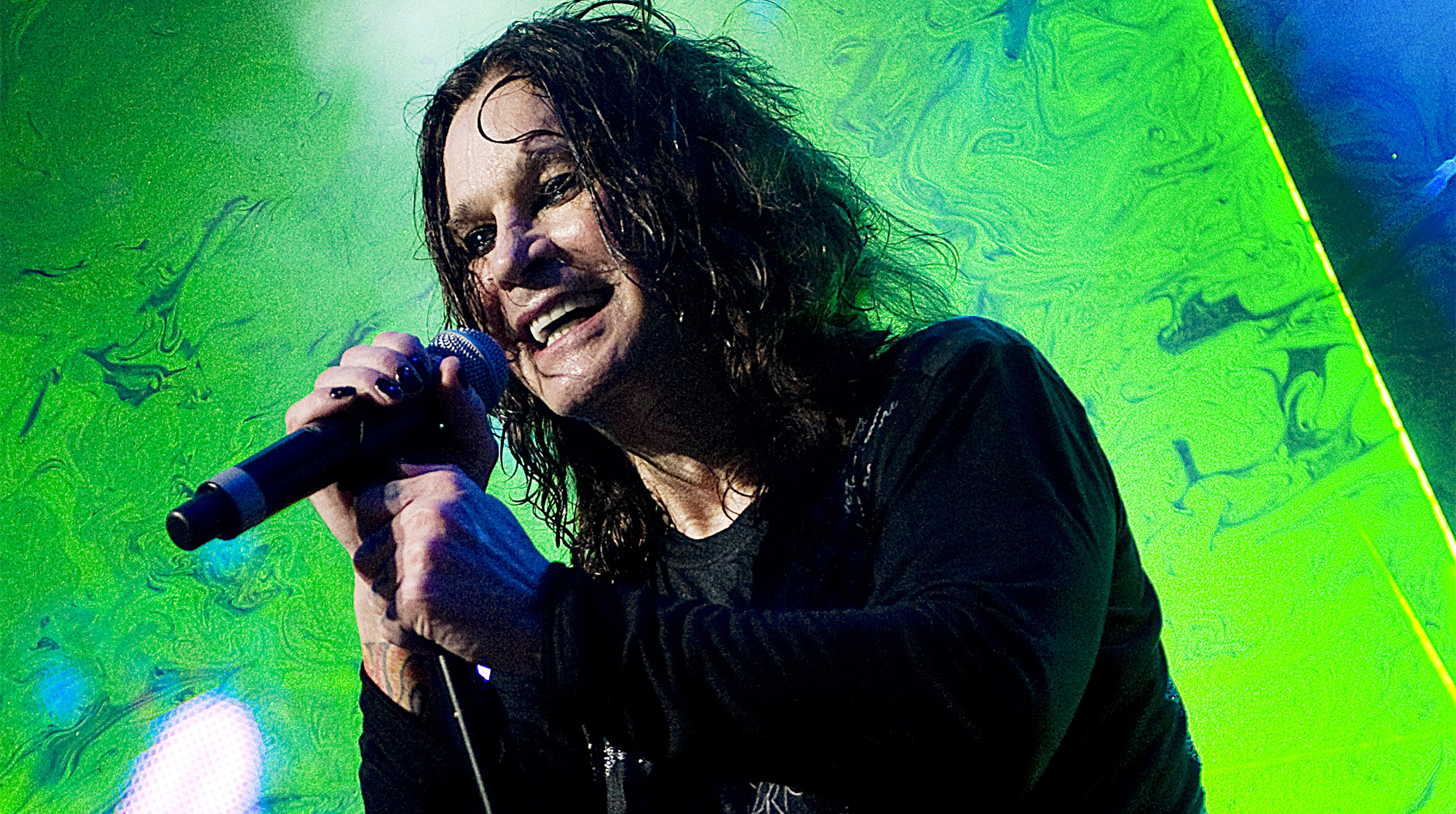“We didn't believe it. For one thing, there were all these rumors that Paul McCartney was dead.” Robby Krieger on the Doors’ "stupid" decision to carry on without Jim Morrison
Contractual obligations forced the three remaining band members to release three more albums before calling it a day

All the latest guitar news, interviews, lessons, reviews, deals and more, direct to your inbox!
You are now subscribed
Your newsletter sign-up was successful
If you're a famous band, carrying on without your lead performer is a risky maneuver. Queen and Paul Rogers weren’t exactly a roaring success; some may say Adam Lambert hasn't fared much betterl. And many regard Lynyrd Skynyrd’s lack of original members as evidence that the band should have hung it up following the death of Gary Rossington.
Granted, there have been success stories. Alice In Chains, spearheaded by Jerry Cantrell, produced one of rock’s finest comeback records in 2009’s Black Gives Way to Blue, seven years after Layne Staley’s death. ZZ Top’s power trio, together for over 50 years, found new life with Elwood Francis after Dusty Hill’s passing.
When the Doors’ unparalleled frontman Jim Morrison died in 1971, most felt the Doors died with him. Nevertheless, Robby Krieger and the rest of the band tried to move forward, with the guitarist and keyboardist Ray Manzarek sharing lead vocals. Legend has it they approached Paul McCartney and Iggy Pop about a reprised version of the band, but those link-ups never materialized.
Other Voices, the band's seventh studio album, was released in October '71, a little over three months after Morrison's death. The band had already started working on the followup to L.A. Woman (also 1971) before Morrison's passing, and although the album wasn't a commercial failure, Krieger harbors his regrets for making. He also reveals an interesting factor that affected their decision making.
“When we heard that he was gone, we didn't believe it,” Kreiger tells Billy Corgan's The Magnificent Others podcast. “For one thing, there were all these rumors about 'Paul [McCartney] is dead,' and blah, blah, blah.
“So we sent our manager, Bill Siddons, over to France, to Paris, to check it out. And, unfortunately, he never saw the body. So we were still thinking, Maybe he really is just trying to fool everybody. But after a while, it sank in.”
Morrison had moved to the French capital shortly before his death. Meanwhile, Krieger, Manzarek, and drummer John Densmore had started to flesh out the songs that would later populate Other Voices.
All the latest guitar news, interviews, lessons, reviews, deals and more, direct to your inbox!
“When Jim had gone to Paris, we had continued to practice and play almost every day,” Krieger says. “And we had come up with a whole bunch of new songs that were going to be on the next album. If Jim liked them.”
From the outside, it's easy to point fingers at the surviving members and say it was disrespectful to continue without their talisman. But, Kreiger reveals, there were other factors at play, including obligations to their record label, Elektra.
“Elektra Records [and label CEO] Jack Holzman was really cool about the whole thing. And he says, ‘Why don't you guys put out another record?’” the guitarist continues. “‘Everybody's gonna miss Jim, and everything.’"
Besides, the band were contractually obligated to turn in two more albums.
"So he says, ‘Yeah, let's do them, let's keep it going.’”

It didn’t sound like the trio had much choice.
Other Voices and its successor, 1972's Full Circle, were far from throwaway releases. Beyond that, 1978's An American Prayer, pieced together from Morrison's spoken-word recordings, earned the band their only Grammy nomination.
Still, Krieger has mixed feelings about the band's decision.
“We did have reservations,” he admits. “I mean, it's like the Stones going on without Mick Jagger, or something like that.
“Maybe it was a stupid idea. I don't know. But I really love some of those songs that are on those albums.”
Krieger's podcast appearance follows his showing on Rick Beato's YouTube channel, where he aimed to dispel myths surrounding their 1967 hit “Light My Fire”. But there was a key detail he missed out. Luckily, he shed some light on this particular matter when speaking to Guitar Player in 2020.
“We started out playing covers partly because the club owners wanted that, but also because we didn’t have enough of our own songs,” he explained. “Jim was the songwriter, and he had about 12 songs written, but we were still playing things like ‘Gloria’ in the clubs.
“At one point, he said, ‘Guys, we need more originals. Why don’t you try writing some?’
“So I said, ‘Okay. What should I write about?’ And he said, ‘Just write something timeless. Something that won’t go out of style next year.’”
Fire, he felt, was pretty timeless, and the tides began to turn very quickly for the band. The body of work the quartet produced is still celebrated half a century on.
Indeed, Ace Frehley was such a fan of the band that he lifted one of Krieger's solos note-for-note for a Kiss song, much to the dismay of Gene Simmons.
Most recently, Krieger worked with the newly reformed Alice Cooper group to play guitar on their new track "Black Mambo." The occasion saw the guitarist and Cooper recall when the Doors and Cooper's group were friends on the late 1960s L.A. scene.,
A freelance writer with a penchant for music that gets weird, Phil is a regular contributor to Prog, Guitar World, and Total Guitar magazines and is especially keen on shining a light on unknown artists. Outside of the journalism realm, you can find him writing angular riffs in progressive metal band, Prognosis, in which he slings an 8-string Strandberg Boden Original, churning that low string through a variety of tunings. He's also a published author and is currently penning his debut novel which chucks fantasy, mythology and humanity into a great big melting pot.



